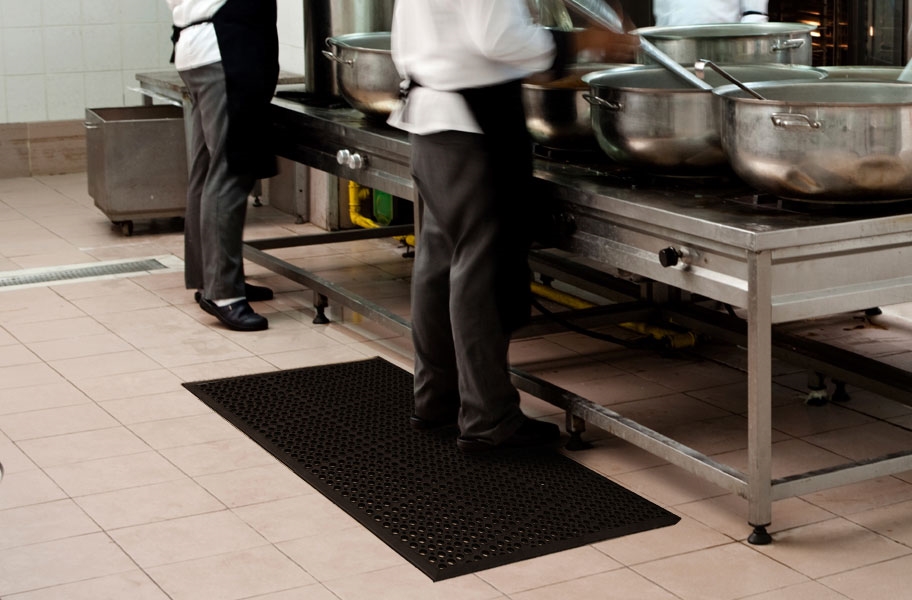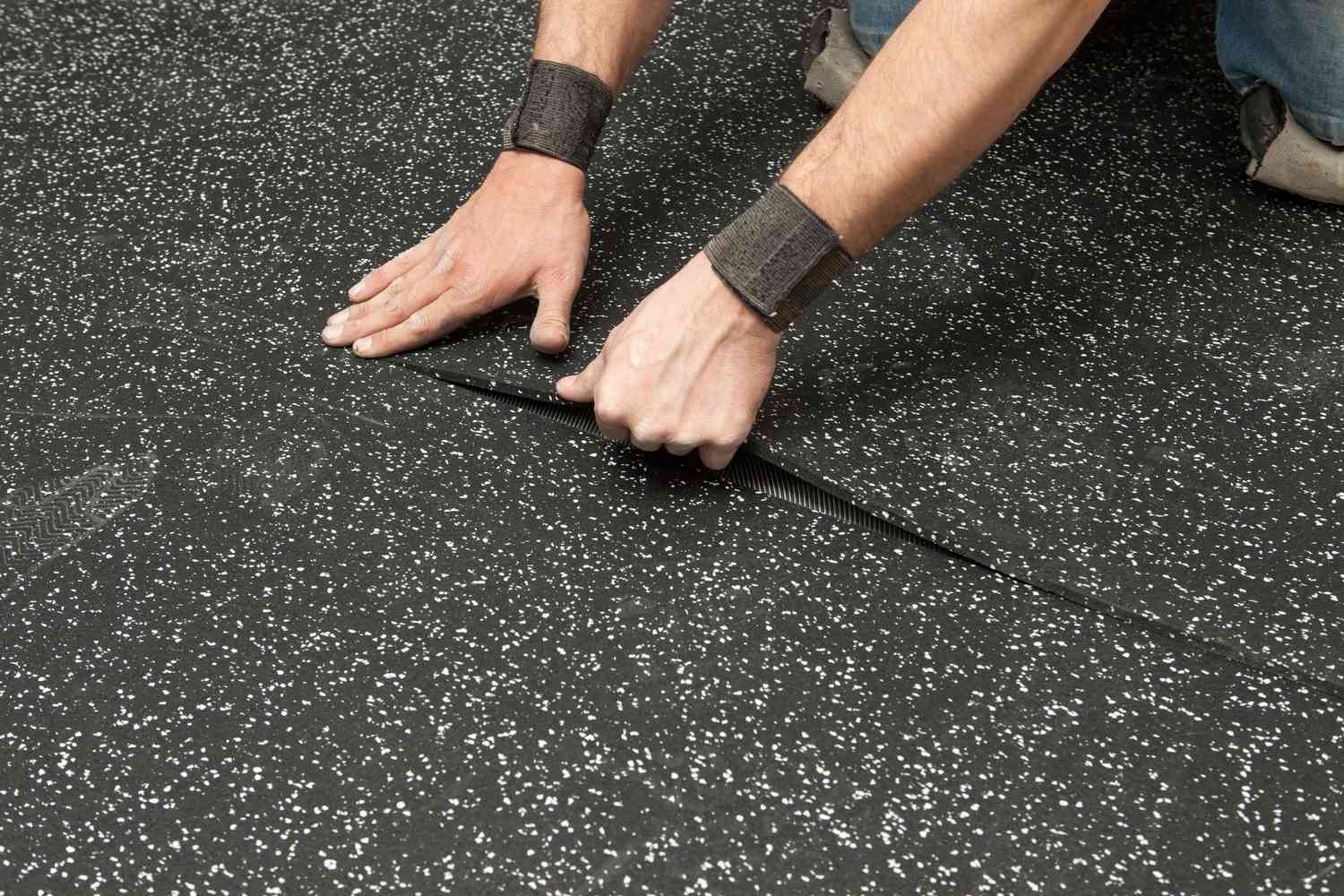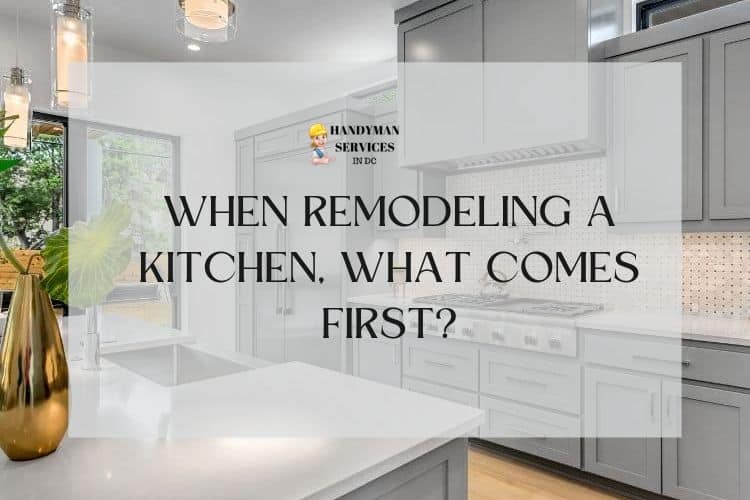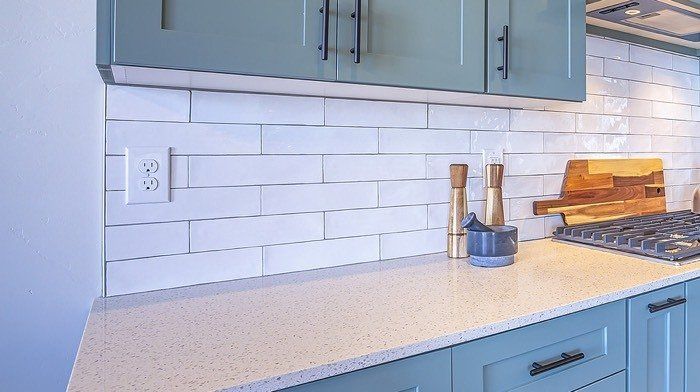Is Rubber Flooring Good For Commercial Kitchens?
Rubber flooring has been increasingly popular in commercial kitchens and other food preparation areas. It provides a safe, non-slip surface that is easy to clean and maintain. Rubber flooring is also resistant to water, oil, and grease, making it an ideal choice for a busy kitchen. Additionally, rubber flooring is an economical option that can be installed quickly and easily. With its durability and affordable cost, rubber flooring is a great choice for commercial kitchens.
Types of Rubber Flooring Used in Commercial Kitchens
When it comes to commercial kitchen flooring, rubber can be a great option. Not only is it durable, slip-resistant, and easy to clean, it also offers excellent value for money. But with so many types of rubber flooring available, it can be tricky to know which one is best for your commercial kitchen. To help you decide, here’s a quick overview of the different types of rubber flooring used in commercial kitchens.
First, there’s solid rubber flooring, which is usually made from recycled rubber and is available in a range of thicknesses and densities. Solid rubber flooring is a great choice for commercial kitchens, as it’s slip-resistant and provides excellent cushioning for staff. It’s also easy to install and maintain.
Another option is rubber tiles, which are ideal for high-traffic areas and can be easily replaced if damaged. Rubber tiles are available in a range of styles, colors, and sizes, so you can customize the look of your kitchen. They’re also great for areas where liquids and grease are present, as they’re easy to clean and provide excellent slip-resistance.
Finally, there’s rubber sheet flooring, which is a great option for areas where liquids and grease are present. Rubber sheet flooring is often used in commercial kitchens as it’s easy to clean and provides excellent slip-resistance. Plus, it’s available in a range of colors and textures, so you can create a unique look for your kitchen.
No matter which type of rubber flooring you choose for your commercial kitchen, it’s important to choose a product that’s durable and easy to maintain. With the right rubber flooring, you’ll be able to create a safe, comfortable, and attractive environment for your staff.
Benefits of Rubber Flooring in Commercial Kitchens
Rubber flooring has become increasingly popular in commercial kitchens due to its numerous benefits. Especially when it comes to safety, hygiene, and comfort, rubber floors are an excellent option. Rubber floors are slip-resistant, which helps to reduce the risk of slips and falls in the kitchen. They are also anti-fatigue and provide cushioning for workers who are on their feet all day. Rubber flooring is also resistant to staining, which makes it very easy to clean and maintain. Furthermore, rubber flooring is sound absorbent, which helps to reduce noise levels in a busy kitchen. Finally, rubber flooring is very durable and can withstand heavy foot traffic, making it a great long-term investment.
In conclusion, rubber flooring is an excellent choice for commercial kitchens. It provides numerous benefits, including slip-resistance, anti-fatigue cushioning, stain-resistance, sound absorbency, and durability. Therefore, rubber flooring is an ideal option for any commercial kitchen.
Durability and Longevity of Rubber Flooring
Rubber flooring is an excellent choice for commercial kitchens due to its incredible durability and longevity. Rubber flooring is made from an extremely resilient material that can withstand high foot traffic and heavy machinery, making it an ideal choice for any busy kitchen. Unlike other flooring materials, rubber is resistant to spills, water, and grease, meaning it is easy to keep clean and maintain. Additionally, rubber flooring is highly slip-resistant, reducing the risk of accidents or slips in the kitchen. Furthermore, rubber flooring is easy to install and requires minimal maintenance, making it a cost-effective option for any commercial kitchen. All in all, rubber flooring is an ideal choice for any commercial kitchen due to its durability, longevity, and cost-effectiveness.
Cost Considerations for Rubber Flooring
Cost is always an important consideration when selecting a new flooring option for a commercial kitchen. Rubber flooring for commercial kitchens can be a cost-effective solution when compared to other materials. While the initial cost of rubber flooring may be slightly higher than some other materials, it offers significant long-term savings. Rubber flooring is extremely durable and requires very little maintenance, meaning that it will last much longer than other materials. Additionally, rubber flooring is resistant to water, stains, and grease, meaning that it will not need to be replaced as often as other materials that are more prone to damage. Finally, rubber flooring is easy to install, which can lead to cost savings in installation fees. All these factors make rubber flooring a cost-effective solution for commercial kitchens.

Pros and Cons of Rubber Flooring in Commercial Kitchens
Rubber flooring is becoming an increasingly popular choice for commercial kitchens due to its durability, ease of maintenance, and slip-resistant properties. While rubber flooring can be beneficial for commercial kitchens, it’s important to consider the pros and cons before making a decision.
On the plus side, rubber flooring is extremely durable and can withstand heavy foot traffic, spills, and other kitchen hazards. It’s also slip-resistant, so it can help prevent slips and falls in busy commercial kitchens. In addition, rubber flooring is easy to clean and maintain, making it an ideal choice for busy kitchens.
However, there are some drawbacks to rubber flooring. It can be expensive to install and may not last as long as other flooring options. Additionally, rubber flooring can be prone to staining and may require frequent resealing. It’s also important to consider how the rubber flooring will look in your space, as it can be difficult to match existing décor with rubber flooring.
Ultimately, rubber flooring can be a great choice for commercial kitchens, but it’s important to consider all the pros and cons before making a decision. Consider the cost, maintenance, and look of the rubber flooring to determine if it’s the right fit for your commercial kitchen.
Maintenance Requirements for Rubber Flooring
Rubber flooring is becoming increasingly popular in commercial kitchens because of its durability and slip-resistance. However, like any other type of flooring, it requires maintenance in order to maintain its original appearance and functionality. To ensure that rubber flooring in commercial kitchens is kept in optimal condition, it is important to understand the maintenance requirements of this type of flooring.
Routine cleaning is important in order to keep the rubber flooring free from dirt and debris. This should be done on a regular basis and should involve sweeping, mopping, or vacuuming. It is also important to regularly inspect the rubber flooring for signs of wear and tear, as this can indicate possible areas of damage that need to be addressed.
In addition to routine cleaning, rubber flooring should also be protected from potential damage. This can be done by placing mats in high traffic areas, such as in front of stoves or ovens. This will help to protect the rubber from heat and grease stains, as well as preventing dirt and debris from accumulating. If the flooring does become stained or damaged, it is important to act quickly and address any issues immediately.
Finally, rubber flooring should be sealed regularly in order to maintain its original appearance and extend its lifespan. This should be done on an annual basis, or more often in high traffic areas. Sealing the rubber flooring will help to protect it from moisture, stains, and wear and tear.
By understanding and following the maintenance requirements of rubber flooring, commercial kitchens can ensure that it remains in optimal condition and provides a safe and hygienic workspace for staff.
Cleanliness and Safety of Rubber Flooring
in Commercial Kitchens
Rubber is an effective flooring material for commercial kitchens due to its durability and slip resistant properties. Its non-porous surface makes it easier to keep clean and free of bacteria, ensuring a safe environment for food preparation and serving. Furthermore, its shock-absorbing properties mean it is able to withstand heavy traffic and protect against accidental falls. Moreover, rubber flooring is easy to clean and maintain, making it a great choice for busy commercial kitchens. Its soundproofing capabilities also help to reduce kitchen noise, creating a more pleasant atmosphere for both staff and customers. All of these factors make rubber flooring an excellent option for commercial kitchens, helping to ensure safety and cleanliness while providing a comfortable, professional space.
Alternatives to Rubber Flooring for Commercial Kitchens
When it comes to commercial kitchens, rubber flooring can be a great choice. It is slip-resistant, durable, and easy to clean, making it a popular choice for restaurant owners. However, rubber is not the only option when it comes to flooring. There are a variety of other materials that can be used in commercial kitchens, each with their own set of advantages and drawbacks.
Ceramic tile is a great option for commercial kitchens due to its water-resistant and easy-to-clean nature. It is also less expensive than rubber and can be used to create interesting patterns and designs. On the downside, ceramic can be difficult to install and may require professional assistance.
Vinyl is another popular option for commercial kitchens. It is easy to install, cost-effective, and available in a wide variety of colors and designs. It also provides a slip-resistant surface, making it ideal for kitchen environments. The downside of vinyl is that it can be difficult to clean and is not as durable as rubber.
Linoleum is a more environmentally friendly option. It is made from natural materials such as linseed oil, wood flour, and cork dust. It is also slip-resistant, easy to clean, and available in a wide variety of colors and patterns. However, it is more expensive than rubber and vinyl and can be prone to wear and tear.
Finally, cork is an excellent option for commercial kitchens. It is slip-resistant, comfortable to stand on, and available in a wide variety of colors and patterns. It is also easy to clean and provides thermal insulation, making it ideal for kitchen environments. The downside is that it is typically more expensive than rubber or vinyl and can be prone to damage from water or other liquids.
When it comes to choosing the best flooring option for a commercial kitchen, it is important to consider all of the options. Each material has its own set of advantages and drawbacks and it is important to evaluate each one carefully before making a decision.
FAQs About the Is Rubber Flooring Good For Commercial Kitchens?
Q1. Is Rubber Flooring Safe for Commercial Kitchens?
A1. Yes, rubber flooring is an excellent option for commercial kitchen flooring as it is slip-resistant, durable, and easy to clean. It also provides cushioning and a comfortable surface to stand on.
Q2. What Are the Benefits of Rubber Flooring in Commercial Kitchens?
A2. Rubber flooring provides many benefits in commercial kitchens, including a waterproof surface that is easy to clean and maintain, slip-resistance, sound absorption, and cushioning for standing workers.
Q3. How Long Does Rubber Flooring Last in Commercial Kitchens?
A3. Rubber flooring can last for decades with proper maintenance, making it an excellent long-term investment. Additionally, rubber flooring is resistant to wear and tear from heavy foot traffic and heavy equipment.
Conclusion
In conclusion, rubber flooring can be an excellent choice for commercial kitchens due to its durability, comfort, slip-resistance, and ease of cleaning. It is also a cost-effective option that will help to reduce the risk of slips and falls in the workplace. Overall, rubber flooring is an excellent choice for commercial kitchens.






